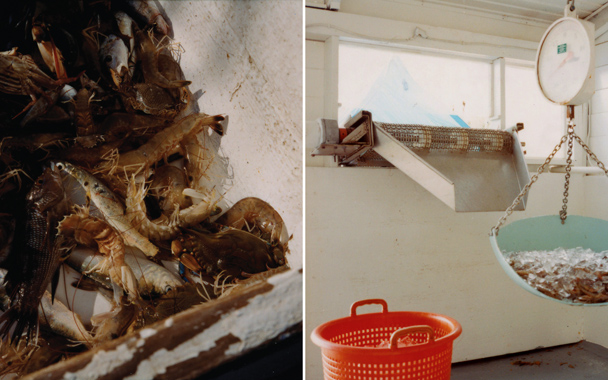It’s been a rough week for sustainable aquaculture companies.
First came word that OceanBoy Farms Inc., which raises shrimp on two sites in south-central Florida, was on the block. The asking price was only $15 million, even though the company’s backers had sunk $61 million into it since its inception in 2001. OceanBoy, which I visited while researching an article, raised its shrimp without drugs and chemicals. The crustaceans’ diet consisted mainly of organic soybeans, plus a small amount of fish protein produced from tilapia raised by OceanBoy on a diet of algae.
A day later, Britain’s No Catch Group Limited, the world’s first producer of “organic” farmed cod, was put into what amounts to receivership after it was unable to repay $78 million in debts. I put the word organic in quotations above because a British agency granted it certification; the United States Department of Agriculture (USDA) has yet to set organic standards for farmed seafood in this country. Company officials are talking to parties interested in buying it—or more particularly, in buying the 3,600 tons of cod it has that will be ready for harvest this year.
I suppose there is some cold comfort knowing that it wasn’t only small, environmentally conscious fish farmers who had a bad week. After its shares lost nearly five percent of their value on a single day last month, Marine Harvest ASA—the world’s biggest aquaculture company, with a market valuation of nearly $2 billion—announced that it was laying off 1,000 workers in 13 of its facilities in Chile. The company blamed the downsizing on an epidemic of Infectious Salmon Anemia (ISA), a fatal disease associated with fish farms in the northern Atlantic Ocean that until last year was not found in Chile.
The bottom line: Farming high-value, naturally carnivorous aquatic species is a dicey financial proposition—more so if you try to do it sustainably.
More BS about GM
To listen to advocates, one of the benefits of growing genetically modified (GM) crops is that they will lead to a reduction in the use of pesticides and other agricultural chemicals. That’s dead wrong, according to a report released earlier this month by the environmental group Friends of the Earth International.
In the United States, the use of glyphosate (the herbicide that Monsanto Co. sells under the trade name Roundup) increased more than 15-fold between 1994 and 2005, largely because of the introduction of GM crops designed to be used in conjunction with the chemical. Between 2002 and 2006, the use of the herbicide 2,4-D more than doubled on soybeans, and applications of the herbicide atrazine (banned in Europe because of health concerns) on corn went up 12 percent.
But what else would you expect when the same companies that sell the chemicals also sell the GM seeds?
Dry Your Eyes
Don’t cry for Dr. Colin Eady. Earlier this month it was announced that the New Zealand plant scientist and his collaborators have developed a tearless onion by shutting down the genes in the plant that produce those nasty, tear-jerking sulfur compounds. Chemicals that once went into the air (and the eyes) stay in the onion. He would like to see the brave new onions as the household norm within the next decade. It makes you want to shed a tear for the versatile, pungent, non-genetically-silenced onions that have served cooks so well over the millennia.




 Pinterest
Pinterest


